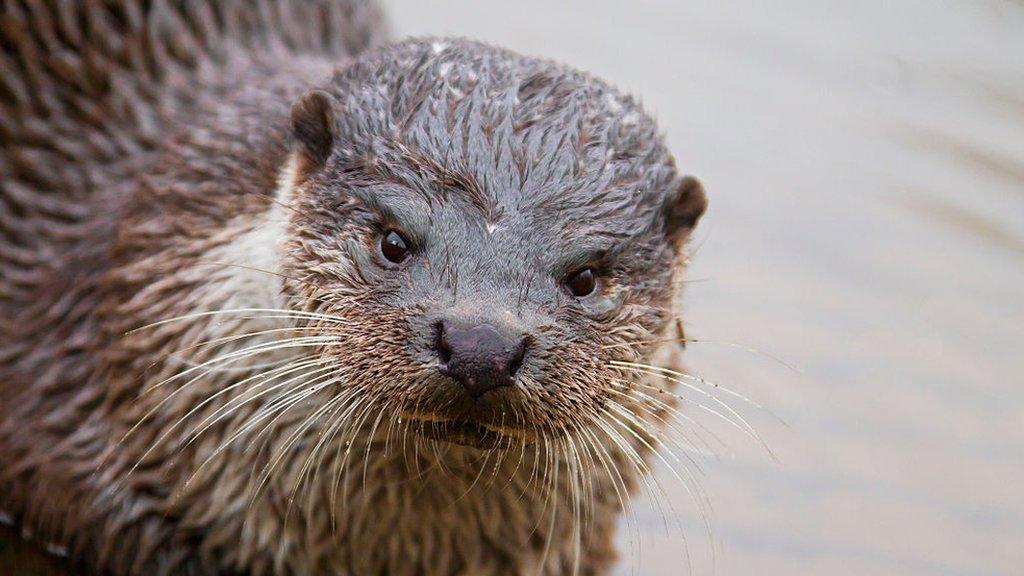Environment Agency seizes illegal traps threatening crayfish and eel
- Published
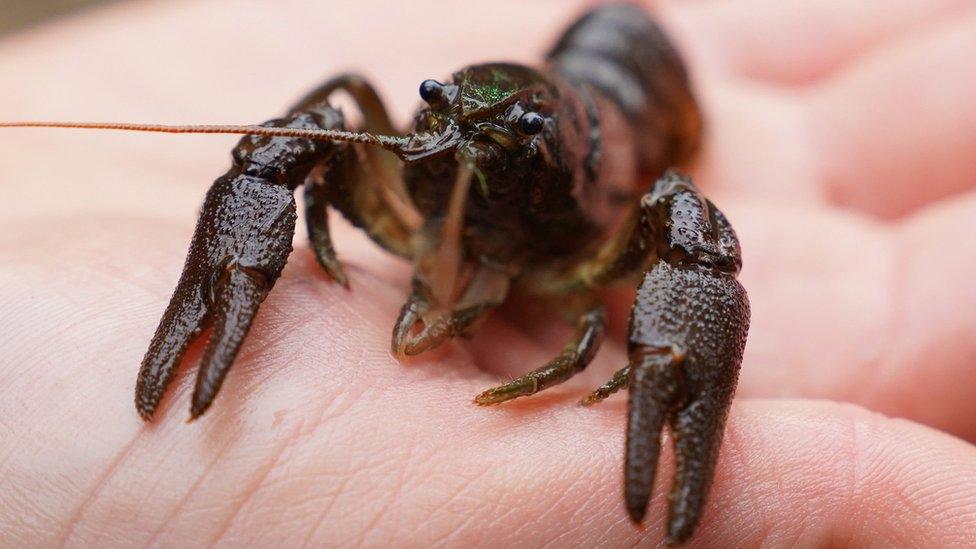
The white-clawed crayfish is already a threatened species with the traps making it worse, the Environment Agency said
More than 20 illegal fish traps have been seized from North East waters, compounding a threat to wildlife from climate change, the Environment Agency said.
The agency said the white-clawed crayfish and European eel are particularly threatened.
The traps have been found on rivers and ponds over the past three months, a spokesman said.
Other animals, including otters, have also died because of them.
David Shears, Environment Agency Senior Fisheries Enforcement Officer, said: "Climate change is putting many of our native species at risk and we need to protect habitats where they thrive.
"It's a serious crime to set these hazardous traps and horrific to see evidence of otters having drowned, as well as the other ecological impacts we risk."
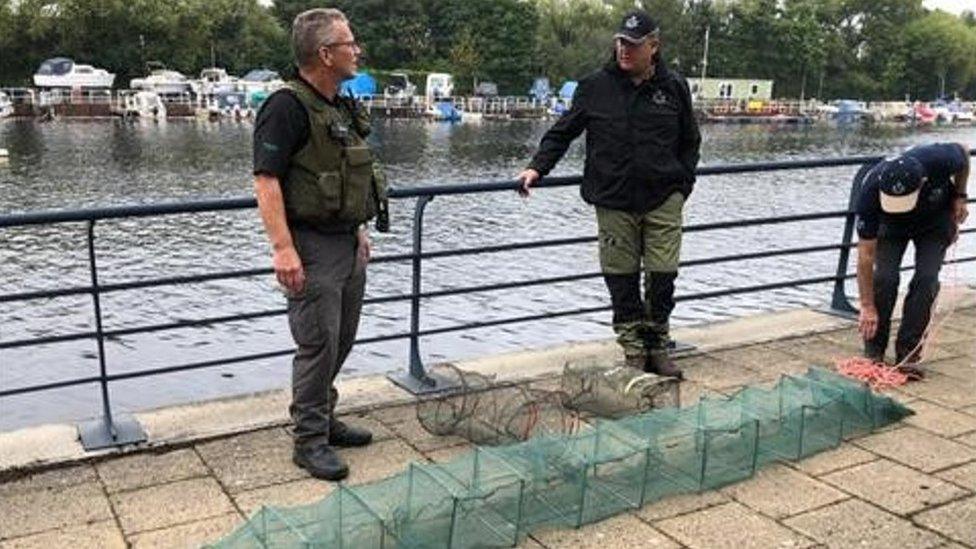
The Environment Agency said it has removed more than 20 illegal traps in the past three months
The Environment Agency said white-clawed crayfish are in decline in the North East due to the invasive American signal crayfish, which is bigger and carries a disease deadly to the native population.
Trapping the signal crayfish can make the problem worse, a spokesman said, as the crayfish plague is "easily transferred" on traps to other areas while the "cannibalistic tendencies" of the invaders means that removing them stops them from regulating their own population.
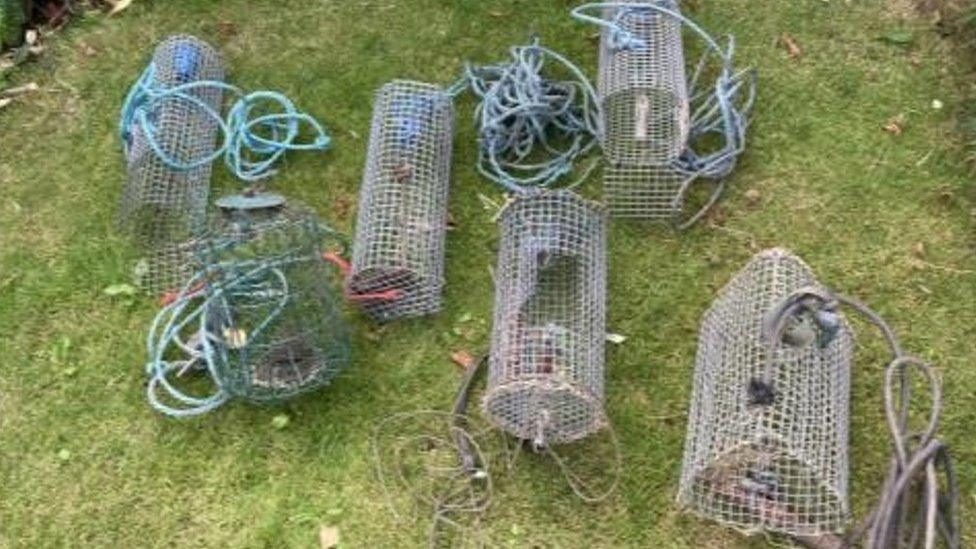
The Environment Agency said many of the illegal traps were reported to them by members of the public
The spokesman said: "Traps used to take fish in England must be authorised by the Environment Agency and be safe for other wildlife.
"Because of the populations of rare native crayfish in the area, traps are rarely authorised other than for scientific reasons.
"Anyone who fishes must also have the permission of the landowner."

Follow BBC North East & Cumbria on Twitter, external, Facebook, external and Instagram, external. Send your story ideas to northeastandcumbria@bbc.co.uk, external.
Related topics
- Published28 September 2021
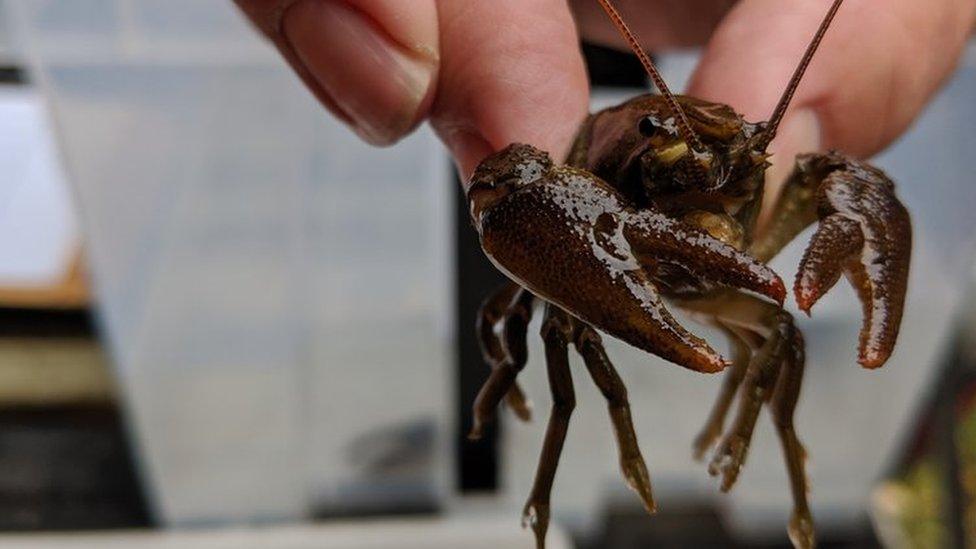
- Published23 April 2021
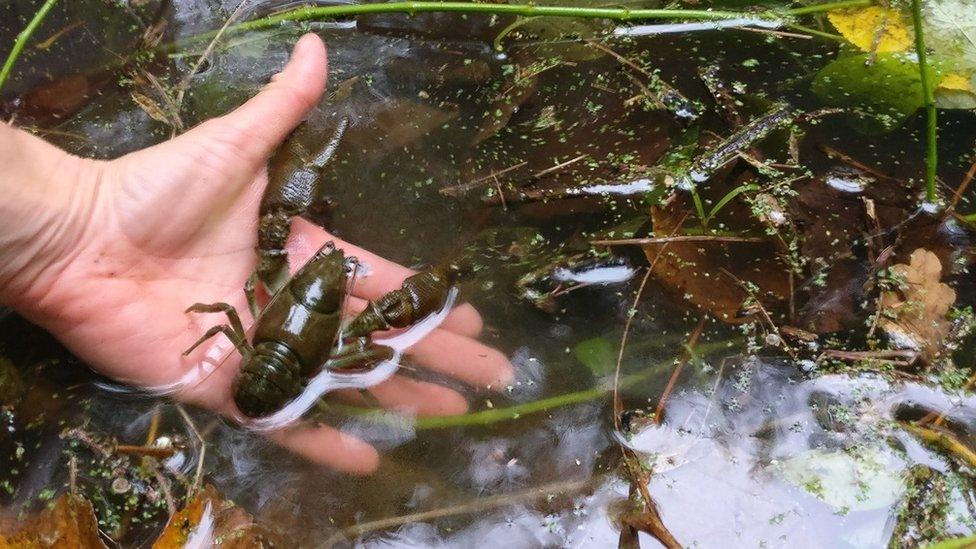
- Published5 October 2020
